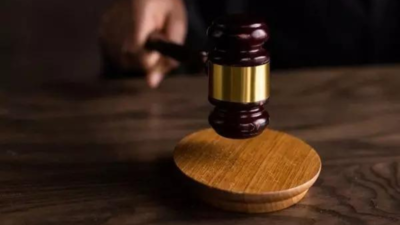SINGAPORE: An Indian-origin Singaporean activist has been referred to the office that administers Singapore‘s fake news law for investigation, after she defied an order to carry a correction notice in her social media posts about the legal processes for death row inmates. The Ministry of Home Affairs (MHA) said on Thursday (October 31) that Kokila Annamalaihas chosen not to comply with the correction direction issued on October 5 despite repeated reminders.
The 36-year-old anti-death penalty activist has also not sought to challenge the correction order in court, even though she is entitled to do so if she believes she did not put out any falsehoods, the MHA added.
Under Protection from Online Falsehood and Manipulation Act 2019 (Pofma), individuals found guilty of failing to comply with a correction direction without a reasonable excuse can be fined up to SGD20,000, jailed for up to a year, or both.
Individuals found guilty of communicating a false statement of fact can be fined up to SGD50,000, jailed for up to five years, or both.
Kokila was issued the correction direction (Pofma) for statements she made on social media platforms Facebook, on October 2, and X, the next day, according to a report by The Straits Times.
On October 22, more than two weeks after MHA instructed the Pofma Office to issue a correction direction against Kokila, she made a post on Facebook saying that she would defy the order.
This issue relates to the execution of a man at Singapore Changi Prison for an offence related to handling pure heroin for the purposes of trafficking.
Kokila claimed there were no false facts in her earlier posts and that she was just stating her opinion.
In its response on October 31, the MHA said the Pofma order does not prevent Kokila from sharing her views, and there is no requirement for the text of her original post to be removed.
Instead, she is required to put up links to an article stating the government’s position. This is so that readers can make their own judgments, the MHA said.
“If indeed she (Kokila) has put out falsehoods, her credibility will be affected. On the other hand, if the Government has made baseless accusations, then the Government’s credibility will be affected. This is what free speech is about,” the ministry noted.
The ministry also noted that Transformative Justice Collective, the activist group that Kokila works with and which made the same statements she did, had complied with the correction direction issued to them under the Pofma.
“The Government does not target individuals or organisations for speaking out against the death penalty,” the MHA said in a statement. “But where false statements are made about government policy which is a matter of significant public interest, then it is important that readers are made aware that what they may be reading is considered false by the Government.”
These statements were in relation to Mohammad Azwan Bohari, 48, who was executed on October 4 after he was convicted in 2019 of possessing no less than 26.5g of diamorphine, or pure heroin, for the purposes of trafficking.
The MHA said on October 5 that Kokila falsely claimed that the government schedules and stays executions arbitrarily, without regard for due process.
She also claimed that the state does not bear the legal burden of proving a drug trafficking charge against an accused person.
Rebutting these claims, the ministry said an execution will be scheduled only when a prisoner has exhausted all rights of appeal and the clemency process.
In Azwan’s case, his appeal against his conviction and sentence was dismissed by the Court of Appeal in 2019, and his subsequent applications for clemency were denied by the president in 2020 and 2022.
He was initially scheduled to be executed in April, but this was stayed as he was involved in a pending court application at the time, the MHA noted. On October 1, three days before he was hanged, Azwan filed another application for a stay of execution. This was dismissed by the Court of Appeal.
The MHA also said that the prosecution always bears the legal burden of proving its case against an accused person beyond a reasonable doubt, even if it relies on presumptions under the Misuse of Drugs Act.
This was the case during Azwan’s trial, the ministry added.
The MHA said Kokila is entitled to undermine confidence in public institutions, in particular the criminal justice system, if she does so based on facts. “But where she does so based on falsehoods, the Government is entitled to a right of response,” it added.
Those who receive a Pofma order can apply to the relevant minister to vary or cancel the order. If the minister refuses the application, they can appeal to the High Court.
Kokila said that she did not appeal to Home Affairs Minister K Shanmugam as this would require her to comply with the order first, and she did not believe she would “get justice”.
“I stand by everything I said in my post,” the daily quoted her as saying.
